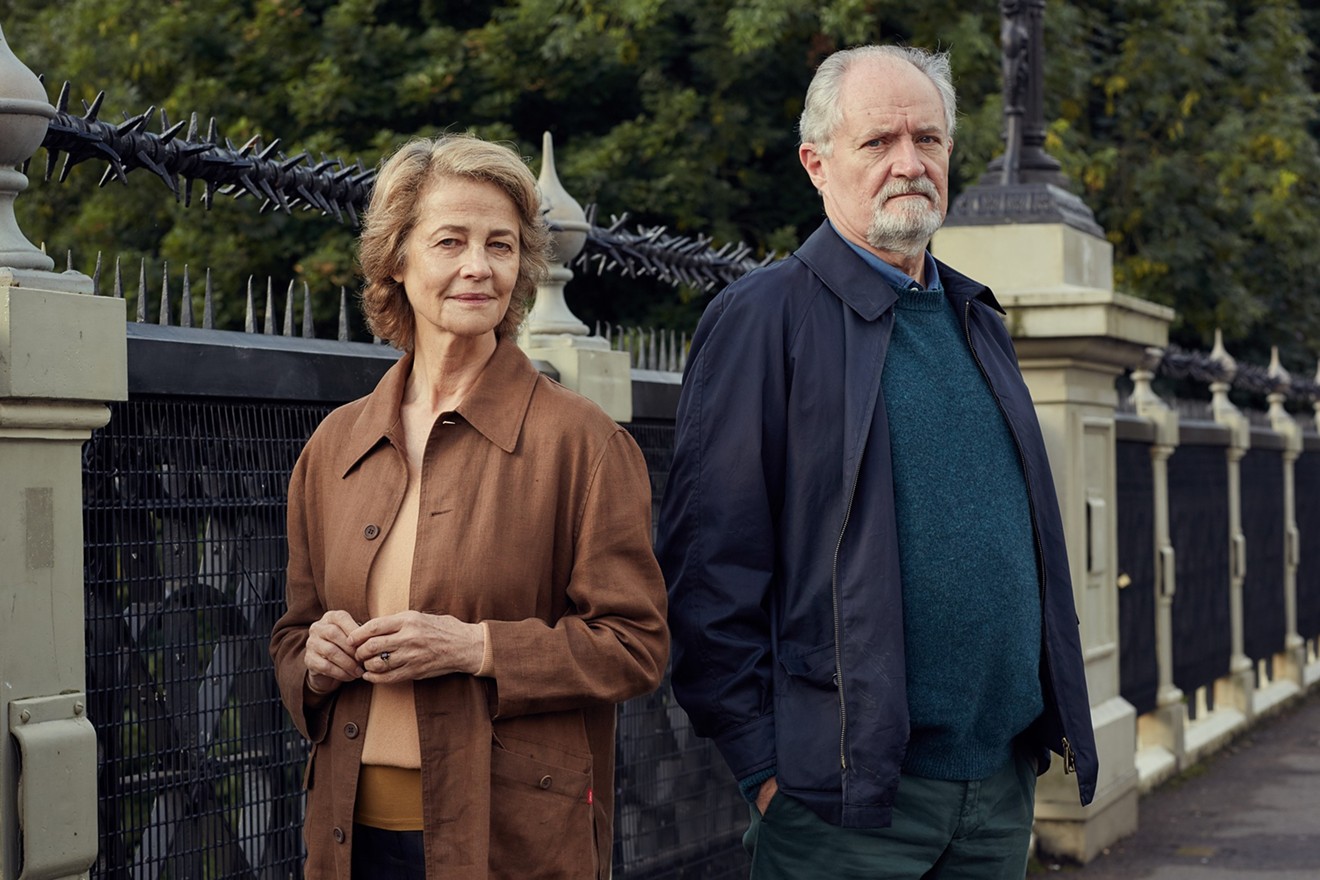To understand how Ritesh Batra’s The Sense of an Ending might disappoint you if you’ve read the suspenseful, tear-jerking Julian Barnes novel on which it’s based, you should think back to Batra’s much-lauded debut feature The Lunchbox (2013). In that humanistic film, a young woman trapped in her marriage falls in love with an older man who accidentally receives the romantic lunchbox she had packed for her own husband. There, though the subject matter of a dreary marriage and a lonely old man could weigh heavily, the tone proved as light and airy, like if Nora Ephron had adapted In the Mood for Love.
That’s not in any way a slight — not every movie need be a dense emotional journey, and The Lunchbox works better as an endearing charmer than it would have as a tense romantic drama. But in The Sense of an Ending, about a 60-year-old man who comes to understand that he’s artfully edited his own memories of a catastrophic event in his youth, that breezy tone acts as a barrier to any suspense. Batra kills the mystery part of the story and instead pushes the adaptation toward that humanism, which renders a good chunk of the plot a wash. Good thing Batra’s really adept at the human portraits, though.
Told from the perspective of Tony Webster — in the present (Jim Broadbent) and the 1960s-era past (Billy Howle) — the story begins with older Tony receiving a mysterious letter from Sara (Emily Mortimer), the mother of one of his former lovers, Veronica (Charlotte Rampling/Freya Mavor). Sara’s died and left Tony the diary of one of his old schoolmates, Adrian (Joe Alwyn), who also used to go with Veronica and committed suicide back in the ’60s.
If this sounds convoluted, it is, but Batra’s contending with his source material, which demands all this be explained to establish the mystery and the many scenes of conflicting backstories — in order to explore the fallibility of memory.
Batra even acknowledges how much ground he has to cover by having Tony’s gregarious ex-wife, Margaret (Harriet Walter), quip about how difficult it is to parse this confounding story, while also surreptitiously helping the audience work it out. Margaret and their pregnant daughter Susie (Michelle Dockery) then become a kind of Greek chorus, trying to set Tony right as he tracks down Veronica to get the diary — What’s in it? Why did Sara want him to have it? Only Veronica knows. At first it seems that the mystery of the diary and Tony’s past — his Demian-like friendship with the insouciant Adrian — will be the driving force of this story, as it is in the novel, but Batra diffuses all that tension to focus mostly on present-day relationships.
Some scenes could easily paint Tony as a creep — like when Tony follows Veronica home after a volatile meeting in which she tells him she burned the diary. But Broadbent, whose affable face has humanized buffoons in films from Hot Fuzz to Harry Potter, keeps Tony sympathetic, softening his edges with some gentle bumbling. Margaret’s presence also grounds Tony; upon hearing he has practically stalked Veronica, Margaret tells him simply to stop it. The film’s most fascinating element is something too rarely seen onscreen: this dynamic between former spouses who still care for one another quite deeply — just not in that way.
Broadbent and Walter are perfectly paired, their characters’ familiarity and contentions always evident, especially as Tony weasels his way into dinner at Margaret’s place and then a platonic sleepover. When, despite having shared a cool 20 years of marriage, he tells her for the first time about his first love (Veronica), the look on Margaret’s face is one of quiet heartbreak. It’s through those moments that a far more compelling story is revealed, one of a man who never understood that love involves sharing a piece of yourself.
Batra seems more comfortable exploring these small, human interactions where there are no answers or solutions: Tony blurts out to his daughter the truth about the pain that’s been weighing on him, even though she’s right in the middle of her labor, as in birthing a child. Her face softens as she takes his hand and asks him to stay. It’s a beautiful, subtle 30 seconds, a daughter finally getting close to her father. So, really, who cares about the diary?
[
{
"name": "Air - MediumRectangle - Inline Content - Mobile Display Size",
"component": "12017618",
"insertPoint": "2",
"requiredCountToDisplay": "2"
},{
"name": "Editor Picks",
"component": "17242653",
"insertPoint": "4",
"requiredCountToDisplay": "1"
},{
"name": "Inline Links",
"component": "18838239",
"insertPoint": "8th",
"startingPoint": 8,
"requiredCountToDisplay": "7",
"maxInsertions": 25
},{
"name": "Air - MediumRectangle - Combo - Inline Content",
"component": "17261320",
"insertPoint": "8th",
"startingPoint": 8,
"requiredCountToDisplay": "7",
"maxInsertions": 25
},{
"name": "Inline Links",
"component": "18838239",
"insertPoint": "8th",
"startingPoint": 12,
"requiredCountToDisplay": "11",
"maxInsertions": 25
},{
"name": "Air - Leaderboard Tower - Combo - Inline Content",
"component": "17261321",
"insertPoint": "8th",
"startingPoint": 12,
"requiredCountToDisplay": "11",
"maxInsertions": 25
}
]











